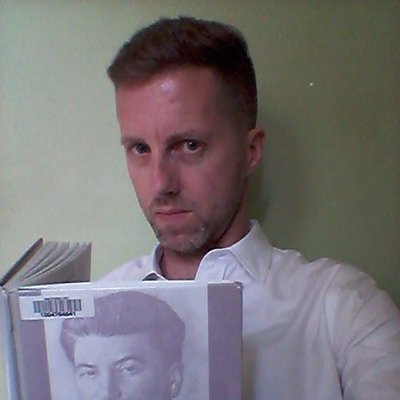August 8, 2023
By Stephen Gowans
Kim Il Sung, the Korean guerilla leader and founder of the Democratic People’s Republic of Korea, once warned colonized people about inviting the robber lurking outside their house to help evict the robber already in it.
Kim was worried that his compatriots calling upon the United States for help in ejecting Japan from Korea, would lead to disaster. Koreans would swap one imperialist master (Japan) for another (the United States.). Kim’s warning was realized when Syngman Rhee, who had advocated an alliance with the United States to defeat Japanese imperialism, was brought to power by Washington as president of South Korea. Since then, South Korea has been a semi-autonomous state dominated by Washington.
Canadian Communist Alex Boykowich wants Nigeriens to make the same mistake Koreans made.
When French communists repeated Kim’s warning in connection with Niger, pointing out that Nigeriens asking Russia for help in ejecting France from Niger, would amount to accepting Niger’s continued exploitation by an outside power, Boykowich objected.
Boykowich is a member of the Putin Club, a group of self-proclaimed communists and socialists whose grasp of communist history and thought appears to be tenuous, and who believe, as Syngman Rhee did, that alliances with imperialist powers can be a good thing.
The Canadian Communist’s view is that, when it comes to Russia, activists in the Marxist-Leninist tradition should concern themselves with affairs inside their own country, and remain silent on matters in countries in which Russia is trying to extend its influence. To put it another way, Boykowich wants Canadian communists to pressure Ottawa to stop contributing to the US-led project of impeding Russia from extending its influence in Ukraine and Niger, rather than telling Nigeriens it would be a mistake to ally with Moscow.
The alternative, that communists oppose (1) the rivalry of both the United States and Russia to exploit Ukraine and (2) the contest of France and Russia to despoil Niger, is excluded from Boykowich’s and the Putin Club’s way of thinking.
Boykowich’s demand that communists forebear from offering advice, warnings, or encouragement to people beyond the borders of their own country, conflicts sharply with the history of Boykowich’s own political party, the Communist Party of Canada.
In Boykowich’s way of thinking:
- The scores of Canadian communists who joined the International Brigades to the defend the Spanish Republic should have stayed home, and instead pressured Ottawa to change its policy toward Spain.
- Canadian Communist Norman Bethune should have remained in Canada to press Ottawa to stop supporting British imperialism, rather than travelling to China to join Mao’s Eighth Route Army and meddle in the affairs of a foreign people.
Che Guevera, an Argentine who involved himself in the struggle of Cuba against US imperialism, is also worthy of condemnation in Boykowich’s manner of thinking.
Lenin, who was forever writing resolutions on how working people across national lines—and outside his own country—should conduct their struggle against imperialism, falls foul of Boykowich’s demands.
As do Hilferding, Bukharin, Trotsky, and Luxemburg, who, in the Boykowich view, arrogantly lectured workers of countries other than their own on how to defeat imperialism.
If in WWI the SDP wanted to vote for war credits, and German workers wanted to support the Kaiser, who were Lenin, Bukharin, and Trotsky—all Russians—to object? After all, the conduct of German workers was an internal German matter, to be settled by Germans, without arrogant outsiders obtruding their advice, in the Boykowich view. Lenin, Bukharin, and Trotsky should have focused on the Tsar, and held their tongue when it came to the question of whether German workers and their political party, the SDP, should have supported the Kaiser. When Lenin condemned the SDP for its betrayal of the working class, he was, as Boykowich sees the world, wrong. “We must deal with our own imperialism first,” councels Boykowich and the Putin Club. We must say nothing about how workers in other countries deal with theirs.
Boykowich, who seems to admire Stalin, should review the conduct of his hero and docent. The Soviet leader was forever issuing guidance, instruction, advice, warnings, and encouragement to workers around the world, not least in Russia, despite the fact that he was a Georgian. If Boykowich had his way, Stalin would have stayed home in Georgia to organize the Baku oil workers.

As for Marx, the thinker who proclaimed “Working men have no country,” Boykowich must harbor an especial disdain. How can we expect working people to remain silent on what’s happening in other countries if they think they have no country?